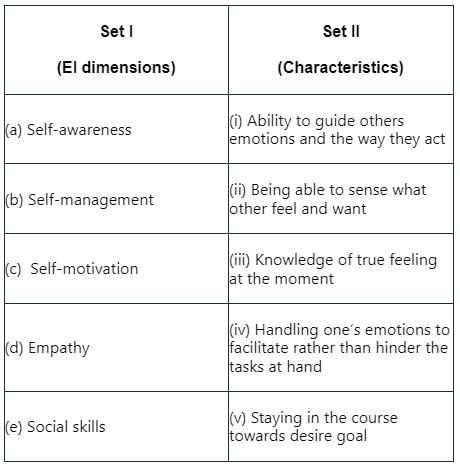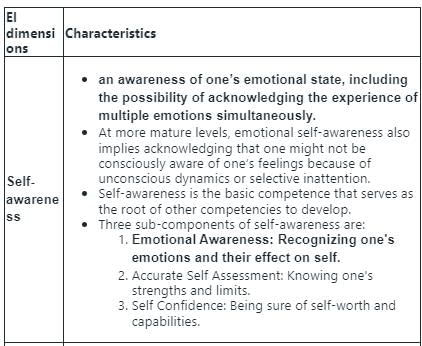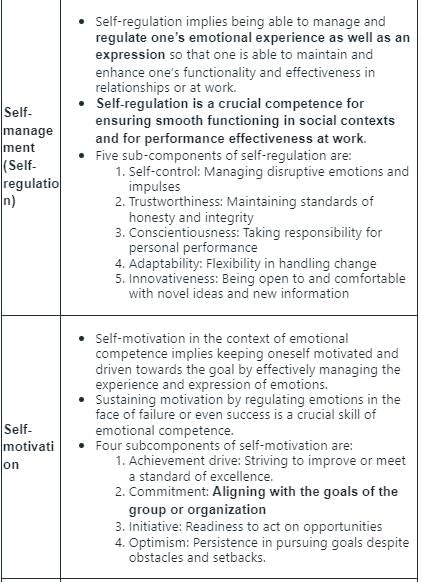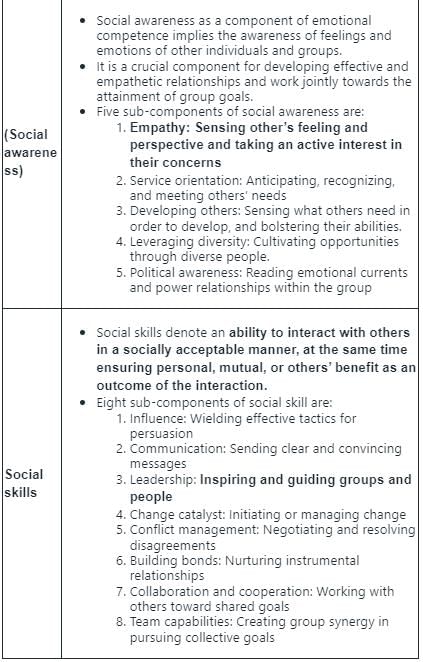MCQ: Emotional Intelligence - SSC CGL MCQ
10 Questions MCQ Test General Intelligence and Reasoning for SSC CGL - MCQ: Emotional Intelligence
Assertion (A): Emotionally intelligent children are found to be good in problem solving.
Reason (R) : Emotional intelligence implies the capacity to integrate and manage the emotion.
In the light of the above statements choose the correct option:
| 1 Crore+ students have signed up on EduRev. Have you? Download the App |
Consider the correct statement:
(I) Meera who is having an instinct to escape will show "anger" as an emotion.
(II) Radha is very happy with an instinct of laugh will show "amusement" as an emotion.
According to Goleman, the "Management of Emotions" component of Emotional intelligence includes
(a) Handling feelings, so that they are appropriate.
(b) Ability to soothe oneself.
(c) Ability to shake off rampant anxiety, gloom, or irritability.
(d) Recognising feeling as it happens.
Choose the correct option
Below are given two sets in which Set I provides the give dimensions of Emotional Intelligence (EI) and Set II offers their characteristic. Match the two sets.

Choose answer from the following options.
Which set of statements will describe the nature and characteristics of the Emotional Intelligence of a person? Choose the correct answer from the code given below.
i) Ability to act purposefully
ii) Ability to handle fear and anxiety
iii) Ability to think abstractly
iv) Ability to promote the feeling of satisfaction
v) Ability to see others point of view
vi) Ability to learn from past experiences
Which of the following is the characteristic feature of the emotional development during adolescence?
Which of the following is a basic component of attitude?
|
177 videos|126 docs|197 tests
|
|
177 videos|126 docs|197 tests
|




















